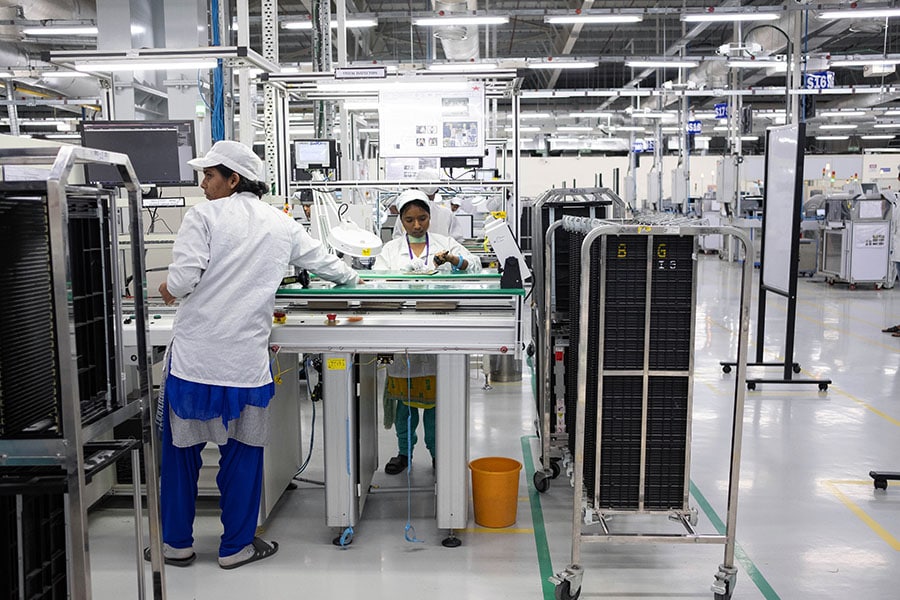
Inside Foxconn's big EV ambitions in India
The Taiwanese electronics manufacturing giant is soon expected to make an entry into electric vehicles manufacturing in India
 Employees work on an assembly line in the mobile phone plant of Rising Stars Mobile India Pvt., a unit of Foxconn Technology Co. in Sriperumbudur, Tamil Nadu, India; Image: Karen Dias/Bloomberg via Getty Images
Employees work on an assembly line in the mobile phone plant of Rising Stars Mobile India Pvt., a unit of Foxconn Technology Co. in Sriperumbudur, Tamil Nadu, India; Image: Karen Dias/Bloomberg via Getty Images
Foxconn's Chairman Young Liu finds a massive opportunity in the electric vehicles (EV) space. Based on market estimates, by 2025, the global EV market will reach $600 billion. Foxconn hopes to reach at least five percent of this market, to become a significant player in the EV industry.
In a recent interview with the BBC, Liu stated: “This is [electric vehicles] much more complicated than the iPhones. A typical EV will have about 10,000 parts, compared to phones that are about 600 parts. That’s roughly 20x more components.” Though there is enough competition when it comes to branded EVs, such as Tesla, there are no contract manufacturers in the EV space. “We think it is very promising for us with that kind of business model to get into this EV business,” he added.
So far, China has been the company’s traditional manufacturing base, but in the recent past the company has been diversifying, not only in terms of products, but also geographically. “Regional manufacturing for EVs is quite natural, since EVs are very bulky. That’s why we had a factory in Ohio, we’re going to have one in Thailand and soon we’ll have one in India,” Liu said. During Liu’s first visit to India last year, Prime Minister Narendra Modi tweeted that the Taiwanese company’s “push for EV manufacturing is in line with our commitment of Net Zero Emission”.
Two-wheeler electric vehicles remain a focus for the company, and they continue to build on production and R&D capacity. It hopes to use the manufacturing experience of two-wheeler electric vehicles to accumulate R&D for electric four-wheelers. Currently, they have an established production in Taichung, Taiwan. “India will also assist with establishment of a production line this year to provide two-wheeled electric vehicle manufacturing services,” stated the company’s annual report. Foxconn might look for a partner to tie-up with, as they did with semiconductors. As for the four-wheel electric market, Foxconn hopes to build artificial intelligence technology and the manufacturing advantage of high in-house production efficiencies, added the report.
Going big with semiconductors
In February 2022, Vedanta and Hon Hai Technology Group (Foxconn) had announced a joint venture to manufacture semiconductors in India—Vedanta Foxconn Semiconductors Limited (VFSL). The company is expected to set up a fab foundry to manufacture 28 nanometre (nm) and 40 nm wafers (slices of semiconductor material used to make integrated circuits). David Reed, who is an industry veteran, has been appointed as the CEO of VFSL.








